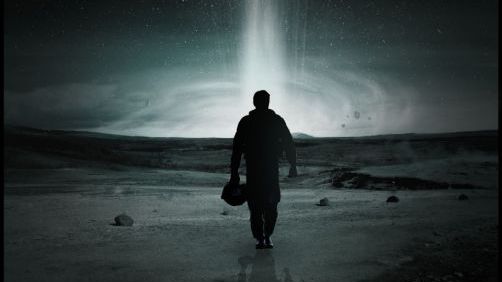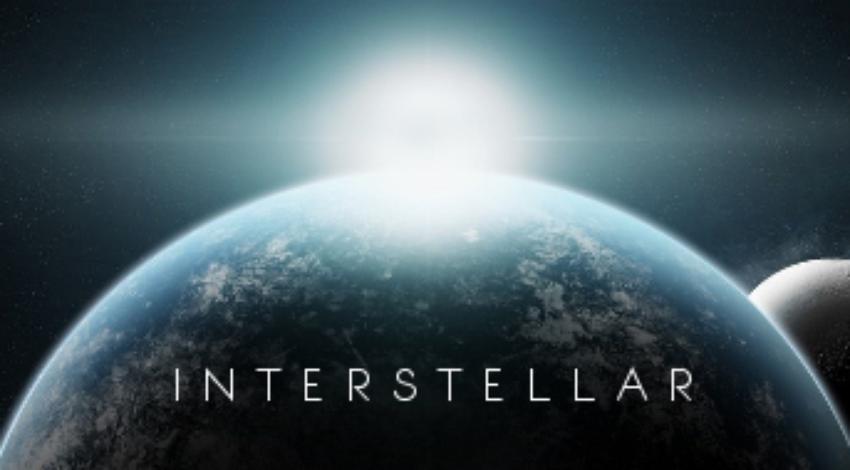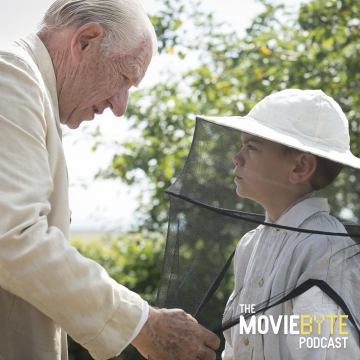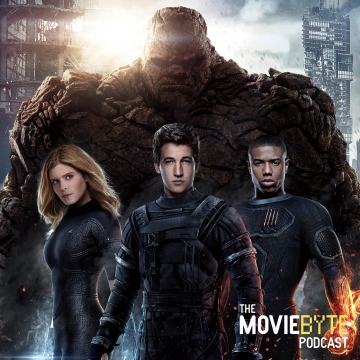
I have a confession to make. I think Christopher Nolan is one of the more highly overrated directors of our time. I know you all probably stopped reading this already, but I have to tell you the truth, I cannot lie to you. Nolan is one of the more celebrated filmmakers of our day, and he does indeed know how to craft a pretty good epic. I’ll also say that his treatment of Batman Begins was nothing short of amazing. It was a breath of fresh air to the franchise, and to the super-hero landscape in general. The Dark Knight was, if anything, better. It’s not the sort of film I can watch quite as often, but it was an incredible film.
But this is where I begin to part ways with the esteemed director. Indeed, in retrospect I can see the departure betwixt me and him even in those two films that I love. The director takes himself and his films far too seriously, and that cannot be sustained forever. The problem is, if Nolan took Batman Begins seriously, he took The Dark Knight twenty times more seriously. In that case and at that time, it was just what the doctor ordered. And there was a sense of correctness about that film that has been lacking from Nolan films since. It didn’t feel trumped up or pompous. It didn’t feel like Nolan was making some big statement about the world or telling us all that he had some grand and glorious vision of the human race and condition. It certainly had a little of that, but it was mostly an epic face-off between a famed super-hero and a famed super-villian. It was super serious, and it worked well.
From there out, I feel like the director has lost his way. I know everyone raves about Inception. Matt Joseph of We Got This Covered says that:
Inception is the best film of the year and one of the best films of the decade, this is Nolan’s masterpiece and it is perfect in every regard.
He gave it five of five stars.
By the same token, Roger Ebert gave it a glowing review and four of four stars.
I am not quite so kind to that film. I think it’s a fine film, but it does not reach the heights of grandeur so many seem to think it does — at least not for me. I should be more careful, more often to distinguish this important point. But for me, it takes itself far too seriously and seems to think its own self importance on the landscape of films is something that it is not. Nolan has a trumped of sense of what the film is, and that makes the film less enjoyable.
The Dark Knight Rises is just a hot mess. It’s an enjoyable hot mess, but the enjoyment of the thing does not make it less so. I don’t know that this film has a trumped up sense of importance so much as Nolan’s heart just didn’t seem to be in it. The story has plot holes 20 miles long, it’s overlong, feels tired and worn out, and just doesn’t have the heart that we expected after watching the first two films in the franchise.
I realize I’m spending a lot of time in review of films that are not Interstellar, but I think it’s necessary to analyze the career of the filmmaker in this case — to see what got us here. Despite my complaints, I have enjoyed Nolan’s contribution to the landscape of filmmaking. And thus we come to his latest offering.

Earth is in trouble
We begin our tale with a series of elderly people in interview settings commenting on what life used to be like. They recount to us how terrible the dust was, what bad shape the earth was in. We soon find out that most pursuits of science, exploration, and betterment have been abandoned in favor of trying to grow food. But the atmosphere of our once great planet is not so great anymore and it is now actually apparently perfect conditions for the blight which is affecting all crops. Corn is the last crop to go, but the days of even that crop are numbered.
And the dust. It’s everywhere. And occasionally, when there’s a storm, it’s a dust storm. Things are not good.
And while all this is going on, our hero’s children are experience major school propaganda. The moon landings never happened, we’ve never been to space, it was all a lie to bankrupt Russia, etc. This was particularly disheartening and problematic since our hero Cooper (Matthew McConaughey) was an astronaut before things started to get bad.
During all this, it seems as though Cooper’s daughter, Murph (Mackenzie Foy), is being troubled by… a poltergeist? Something is knocking things off her shelf in an apparently non-random manner? It’s hard to say exactly what is going on.
For reasons and plot details I still can’t fully explain, Cooper deduces the coordinates of a hidden NASA facility from the randomly knocked off items from Murph’s shelf, and he and Murph go there to find out what is going on. Turns out, they are trying to save humanity by finding a new world on which to live, but they need a good pilot — someone who was an astronaut and had been to space would be perfect. So guess who gets to go?
The film here takes a tremendous shift in tone and we blast off to space with Cooper, Amelia Brand (Anne Hathaway), a couple other crewmen, the names of whom I never really remembered or recalled, and a couple of computer robots.
Thus begins their mission to save humanity from extinction on a dying planet.
Epic
As we have come to expect from the esteemed filmmaker, Interstellar is nothing, if not epic. The film feels really big. No really. This feels like the biggest film that Nolan has ever done. To at least some extent I say that to the film’s credit. The hype over this film by the time it hit theaters was surreal. There was no way, in my mind, that the film could ever live up in scope to the hype that had preceded it. I was pleasantly surprised on this count. The scope and feel of this film is massive. The stakes feel big and properly world ending — they are, after all, on a quest to save the world. The plot of the film is actually quite preposterous, but it makes us believe it. We believe earth is in trouble, we believe that a black hole and a bend in space is the answer. We believe the funky science. The film is in earnest and we take it as such.

Space Travel
One of the things this film gets right is space travel. We don’t get as much of a sense of how boring and how long it is as real scientific types might like, but we get the gist. Hyper sleep, slow, boring travel, 2001esque music. It’s all here and works well for me. But don’t let my reference to 2001 put you off if you found the space sequences in that film boring. It’s here in this film just enough to give us a sense of the dullness of it, but it’s not indulgent the way 2001 was.
Of course, there are things that the film borrows from 2001, such as centrifugal force to create gravity, a strange presence out by a distant planet, and the need to travel there to unravel the possible secrets that are important to humanity.
The similarities end here though because, unlike 2001, in this film, we actually go far beyond just getting there and looking at it, we actually get some action. Bad things happen, lives are lost, stakes are high, human kind needs saving!
Family Drama
One of the more poignant elements of the film is the family drama that’s going on. There’s the Cooper angle: what do you do when you know the earth is dying and your only chance to save it is to leave your family behind and go out to the stars to try to find a habitable world? His daughter is young and needs him, but the earth is dying and human kind — including his daughter — won’t survive if he doesn’t do something.
There’s the angle from Murph’s perspective. She’s a young girl who needs her father and does not understand why he’s leaving. To make things worse, she thinks (and rightly it turns out) that the message she’s getting from the “poltergeist” is that her father should stay. As we see the adult Murph, it seems she sort of hates him for leaving her. Her fears that he just left her to die on earth are even seemingly confirmed at some point.
For his part, Cooper becomes increasingly conflicted about his role in the mission, becoming more and more emotionally unstable — as one might expect. He’s left his family behind, and that can have a strong effect on a man.
Seriousness
Unfortunately I do think this film suffers from that one thing I mentioned early in my review when speaking of Nolan’s previous films, and that is a trumped up sense of self importance. Many times throughout this film, Hans Zimmer’s score swells to unbelievable heights meant to communicate to us the importance of this entire trek and film for mankind. There were at least four recitations of Dylan Thomas’ poem, “Do not go gentle into that good night,” which borders on the point of tedium. The tone is somber and solemn indeed. In fact I would say this film suffers from it. I cannot remember a single joke that worked or was put forth in a way to lighten the mood or the tension. Not a single line of this film was uttered in triviality. But that doesn’t work very well because that’s not the way humans operate. In life we need something to break up the tension once in a while, and in films we do too. What makes a film tedious is often not so much its length (although that can obviously have a major impact), but its unrelenting solemnity. Throughout its 2hr 49m runtime, the film never gives us a break, and the result is tedium.
That’s not to say that some of it didn’t work. The film really picked up speed in the latter half of the second act when we meet up with Dr. Mann (Matt Damon). The tension, the let-down, the betrayal, the drama is all quite wonderful here actually and is what the film needed more of. It’s the sort of thing Nolan does very well and was frustrating that he didn’t do more of it.

Lack of Character Development
This is one of the more profoundly disappointing aspects of the film. I’ve always thought that character development with Nolan films was one of the better things he did. He’s not a whiz at it like you might find with Joss Whedon for instance, but he does well. Consider Bruce Wayne’s character development throughout The Dark Knight trilogy, or Cobb’s development throughout the course of Inception. Yet something was very much missing here with Interstellar. I never felt like I got to know any of the characters very well with the slight exception of Cooper, and even in that case, I felt like I got to know him a very little bit, but there wasn’t any real development.
And don’t get me started about Anne Hathaway’s character, Amelia Brand. She serves no real purpose to the mission, and in fact she seriously screws some stuff up, then gets super emotional about it. On top of that, her priorities get all mixed up and she gets super emotional because she’s in love with one of the scientists that was sent before them to one of the planets and she wants to go see him and be with him.
Perhaps you’ve heard of the Bechdel test? No? Well, read here. I don’t agree at all with the ideals of the woman that came up with the test, and I often feel as if the test is not fair or balanced and can be measuring the wrong thing. However, it is a useful thing and an interesting test to run on a film. Essentially, the test asks if two women ever talk to each other in the course of the film about something other than a man. It’s a very interesting question to ask and can be a great thought experiment. I wish more people writing fiction and/or fictional films would ask this question during script writing. Are my women actually doing anything for this plot?
Interstellar passes this test on a technicality, but it does not pass the intention of the test. Anne Hathaway has nothing to contribute to this mission, and is only along for the ride to hopefully get to see her boyfriend. Look, I’m not saying that this particular plot point should not have been part of the film. It was a good and emotionally resonant thing. And there’s nothing wrong with her being drawn to him. But it seems like this particular plot point was the only reason she was on the mission or written into the story.
Tonal Problems
One of the big problems I also found that I had with this film is the shift in tone. It feels like at least 2 distinct films happened, possibly three. But I’ll just focus on the two.
The first act of this film feels like a disaster flick where earth is failing us, crops are dying and being destroyed, and food is running out. Most people are stupid and want nothing to do with a real solution to the problems. It’s all very earth based, gritty, and grounded.
From act 2 on, the film feels like an epic space opera that occasionally cuts back to the old tone to see what’s going on down on earth. It’s a bit problematic. And the film I preferred by far of these two distinct tones was the one in the second act.
Sound Mix — What the heck happened?
One of the most frustrating elements of this film was the sound mix. I had heard complaints of this even before I seated myself in the theater, but I thought, “oh come now, it can’t be that bad.” It wasn’t. It was far worse than that. At times you simply cannot hear important dialog because the music is so loud. There was an important and emotional scene with Michael Caine and Jessica Chastain that lost meaning and importance because I could not hear what was being said over the emotional music. This was just shockingly bad filmmaking craft for a film made at this scale with this budget. What happened?
I have seen a few friends chalk it up to the fact that they really pushed the overwhelming bass-y rumble in this film — and that is true. Many times the dialog was overpowered by the rumble and the bass. I know exactly what Nolan was going for, but it utterly failed. And I don’t agree that this was the only problem with the sound mix. This added to the problem, but the constant, incessant problem was that the effects and music were always — ALWAYS — competing with the dialogue. I cannot remember having EVER had this complaint with a film in the theater. Home video releases, sometimes yes, but never a film in the theater.
I’ve given a lot of thought as to whether something went wrong toward the end of the process — a master audio track got turned up too high right before mastering — or whether it was intentional. And I’m leaning on the side of intentional. I just can’t figure a way that the film made it through all the quality control checks that are in place in Hollywood with a problem this bad unless it was intentional. I think Nolan was trying to evoke an emotional response and trying to connect us and ground us. In the case where the rumble and bass of the engines was overpowering, I’m sure his thought was that this is how it would be in real life so let’s give the audience a sense of that. In cases where the music was overpowering, I’m sure it was a sense of trying to lead us somewhere emotionally. Nolan has certainly been accused of leading the audience too much when it comes to the emotionality of the film, and I think he got carried away.
There’s a thing that can happen — and trust me, as a filmmaker I am aware of this phenomenon — where you become so familiar with every line in the film, with every nuance, that you don’t realize it has become hard to decipher. I never got the chance to do this much, but when sound mixing, one of the best things you can do is mix your product to the best of your ability, then leave it for two weeks. Don’t think about it, don’t watch a single thing about it, just put it out of your mind. Then come back to it and watch and listen through. You’ll be amazed at all the things you want to change. I think someone failed to do this for Interstellar.

Humanism
I don’t always do this, and my first instinct is not always to evaluate a film in quite this way. But the fact stands, I am a Christian, and as such I have a worldview that colors everything I do, see, and think.
In the case of Interstellar, Nolan’s humanism is well on display here. What do I mean by this?
The message is a common enough one in many places: in Hollywood, politics, government, science, you name it. And that message is this: we are our own gods. There is no divine force at work. There are no higher beings, we are gods to ourselves. The message is clear — in fact I would say it got downright preachy, which is why I noticed it so keenly. The point is driven home through super heavy dialog between Cooper and a computer. It’s ultra-heavy handed and terrible. Easily the worst part of the film. At one point in this sequence, Cooper asks the question of the robot, “did we do it, did we get the message through?” to which the robot responds, “I think we might have.” That’s real dialogue that happened in this film and it was terrible.
Throughout the film, it is clear that some mysterious force or power is at work and setting things in motion. Something is affecting the lives of our characters and orchestrating things to at least some extent. Someone put the wormhole out by Saturn. Someone was doing poltergeist like stuff in Murph’s room. Someone was trying to save humanity from the failing planet they live on.
[SPOILERS FROM THIS POINT ON]
It turns out, that someone was us — at least according to Cooper. You see, when Cooper enters the singularity, he enters a fourth dimension where time and gravity somehow intersect and are manipulatable. It turns out that Cooper is the poltergeist. With the apparent help of far future humans, mankind saves itself. Mankind is a god unto itself. Science has the answers — coupled with love, which is quantifiable. In the end, the message is that we are gods. This is certainly a bit troubling to me as a Christian.
Don’t get me wrong, I am all for the pursuit of knowledge, science, discovery, and more. But that is because it is my perspective that we should do these things as part of the God-given dominion mandate, not because we are gods.
Recommendation
So given all that, what is my recommendation to you? In all, I do think you should watch the film. It’s worth seeing on as big a screen as you can see it on. Despite its numerous issues, it is something we will probably be talking about for years. Many of the visuals are awe-inspiring — even if not quite on a Gravity level. And there is good story there to be found if you look for it. Yes, it’s boring at times, even by my estimations — and I’m always ready for films to slow down a bit and smell the roses as it were — but it does eventually get going. The Mobius-strip aspect of the plot is mind-bending. I feel like the plot has holes, but it’s hard to tell because of the mind-bending nature of it, and I find that fun and fascinating. So go ahead, get out to the theater and enjoy that which is enjoyable.


